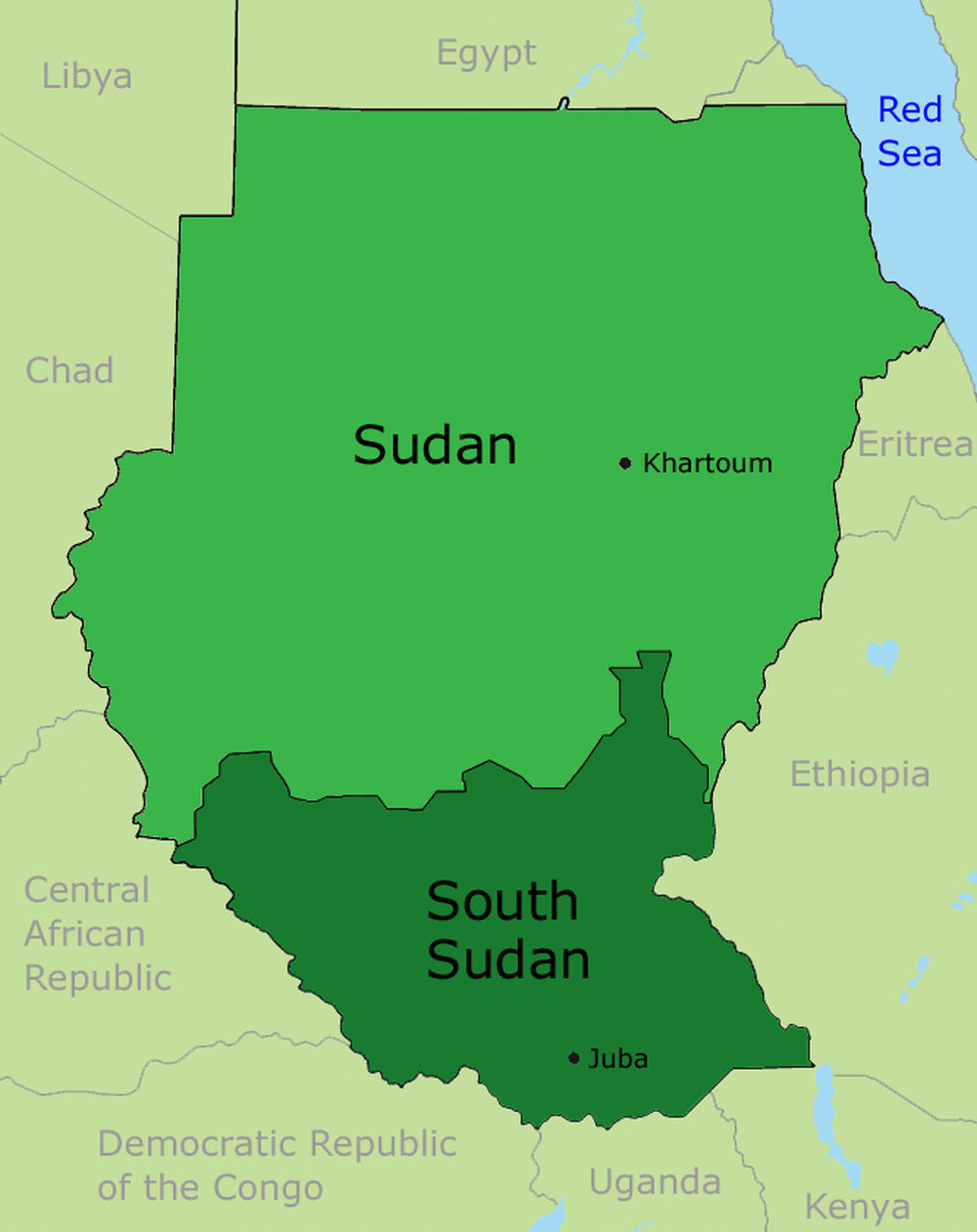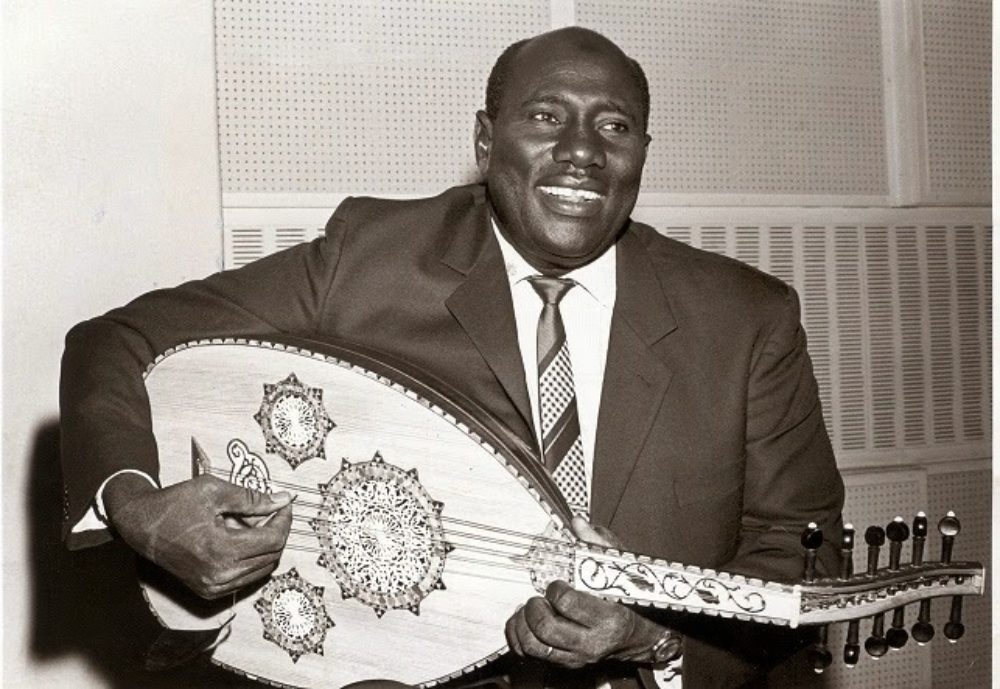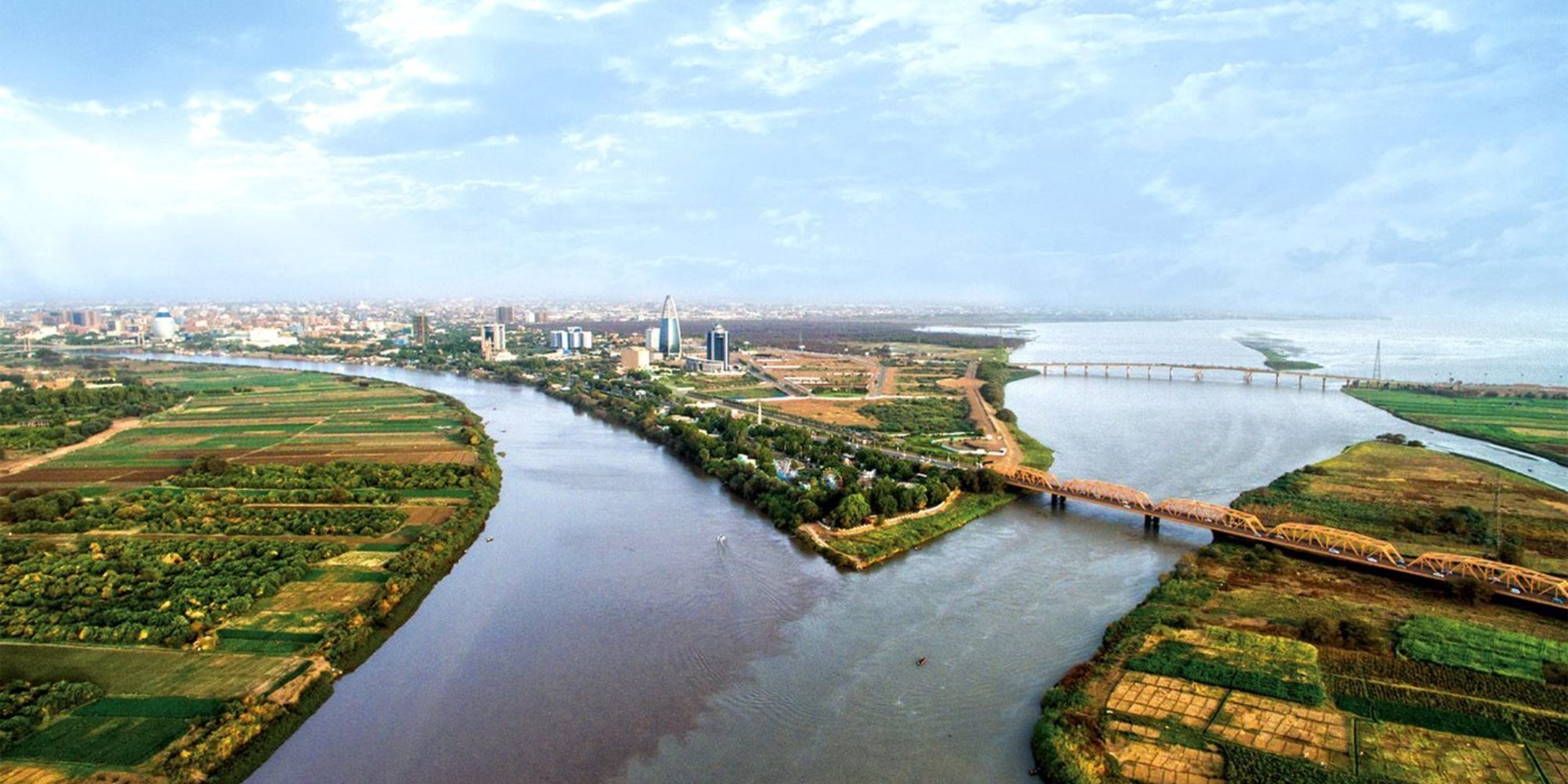Ahmad Sikainga is a professor of history at Ohio State University. He was the principal adviser for Afropop’s Hip Deep program on Sudan, produced in 2008, at the time when the country was still united. In 2011, South Sudan became a separate country, ending Sudan’s tenure as the largest country in Africa. In preparing the program, "Music and History in the Two Sudans", for rebroadcast, producer Banning Eyre reached Professor Sikainga in his office for an update. Here’s their conversation.
Banning: Professor Sikainga, it's been 10 years since we spoke for our original program on music and history in Sudan. A lot has happened since then. Can you fill us in on the big picture?
Ahmad Sikainga: Exactly. I will talk first about the country in general, and then about music specifically. Basically, what happened is that in 2005, a peace agreement known as the Comprehensive Peace Agreement, CPA, was signed by the Sudanese government and the Sudan's People’s Liberation Movement, SPLM. That was headed by the late John Garang. The agreement was supposed to end a conflict that had been going on for more than two decades between South Sudanese rebels and the central government.
Of course, this conflict led to the death and displacement of millions of people from South Sudan. But according to the provisions of the CPA, there would be a transitional period of five years, after which the south Sudanese people would decide whether they wanted to remain part of Sudan or split and have their own independent state. This would be done through a referendum, which took place in 2011, and the overwhelming majority of South Sudanese people voted for independence.

This was actually not surprising, given the long history of bitterness among southern and northern Sudanese, and the southerners’ feeling that they were treated as second-class citizens. On top of that, you had the constant quarreling between the government and the SPLM during this transitional period. So it wasn't surprising that the people of South Sudan would vote for independence. But the response to this split really varied. In the South, of course, independence was met with a great deal of jubilation and euphoria. But in the North, the situation was completely different. To many northern Sudanese, the split of the South was a national disaster, a kind of catastrophic event that resulted in a sense of collective failure and despair.
In the South, this euphoria did not last for very long. The newly born state very quickly plunged into a bloody conflict between the government and the opposition, and it took an ethnic form between the Dinka and the Nuer. The result was awful. You had millions of people displaced, and over 300,000 were killed.
In Sudan, the situation was not much better. You had the loss of oil revenue after the separation in the South. You had the ongoing conflict in Darfur, the Nuba Mountains, in the Blue Nile. Also you had endemic corruption, and all this led to very severe economic hardships. So basically, the outcome is that you had two failed states. And that is where things are at this point.

That's a very good summary of a very sad situation. Now, you go back to Sudan quite regularly. I am curious to hear your observations about musical life on these visits.
Yes, I travel to Khartoum regularly. I also travel to other parts of the country as well. Khartoum has grown. It's a huge city now with millions of people, probably a population anywhere from three- to-four million. During the period of the transition from 2005 to 2011, there was a relative degree of economic prosperity due to the flow of oil money. There was a great deal of investment, so the city was growing in terms of buildings and so on.
The musical scene remained very vibrant, paradoxically, despite deteriorating economic conditions and repression and so on. You would find music everywhere, particularly at wedding parties. You had live performances in different theaters and college campuses and you had radio and television and so forth.
This vibrancy can be attributed to a number of things. First of all, you had a relative degree of prosperity during the transition., And then you also had the failure of this so-called Cultural Project of the regime, which was basically intended to transform Sudanese society and repress any kind of entertainment activity, music and so forth. Because of various factors including resistance from people, the project failed. So you could say that the oppression of the 1990s, that antagonism against performance arts eased a little bit, so it was a better circumstance for music.
And then you had the proliferation of radio and television stations not only in Khartoum itself, but also all over the country. Still, wedding parties remained the main sites of musical performance and dance. On the weekends.
So we're talking about the transition now, between 2005 and 2011, right?
That's right. There was a relative degree of prosperity then. But after that, the situation deteriorated dramatically, and it continues to deteriorate until today. The rate of inflation is just so high. So it was really a very brief period that you had this relative degree of economic prosperity.
But we have to be careful here. There was a great deal of corruption, which led to severe economic inequalities, so even with this relative degree of economic prosperity, the beneficiaries were members of the government, supporters of the regime and their followers. So, basically, you had a tremendous amount of wealth concentrated in a few hands, and you had widespread poverty. The situation among the vast majority of the population, especially the rural areas, was not good.
So the wedding parties remained the main sites of performances where people would dance. And you could see the easing of government intervention. For instance, people dancing (of mixed sexes), and so on. So that has remained the same.
But when you talk about the quality of the performances, there are several categories of performance right now. First, you have the older generation from the golden era, and it's important to note here the passing in 2012 of Mohamed Wardi, the legendary singer, and there were several others from that generation who passed away as well. You have a few artists from the golden era such as Mohamad Al Amin, Abu Araki and several others who have continued to produce music. There are also a number of musical groups that sing, such as Agd Ajalad and others. They recycle old music, but they also do new music.

Some of the old jazz bands and musicians such as Sharhabil, and a group called the Blue Stars have continued also to perform. You also have musical groups from different parts of the Sudan, from the east, especially from Darfur. You have Omar Ihsas and several others who also perform the music and dances of these areas.
But the musical scene at weddings parties is now dominated by young male and female singers who use mainly keyboards to perform songs from the golden era. I would maybe add that the forces of globalization and mobility have impacted the situation, for instance reggae, hip-hop, and particularly the new urban music from Nigeria have also become very popular among the youth. On top of that, you also have a large Ethiopian community, so there's a great deal of Ethiopian music as well, with Ethiopian musical bands performing Sudanese songs and so on. So you could say that although the musical scene is vibrant, the production of new music is still very limited.
When you talk about these global influences like reggae, hip-hop and Afrobeats out of Nigeria, are there young musicians making local music in these styles?
I have seen that somewhat in reggae. But in terms of African music, they just play CDs at private parties. Now, they are even doing that at weddings. I saw that when I was there this last time—especially the Nigerian music. There are also several radio stations that play this kind of music regularly, which is quite new. The stations are run by young people, so that's the main venue for this music.
When we spoke 10 years ago, you mentioned the influence of Congolese music, which was largely coming through musicians from the South who were living in Khartoum and elsewhere. There's a recent release of a 1980 album by the Scorpions, it's called Jazz, Jazz, Jazz. And there's one song on it that sounds very Congolese. Is that still happening after the separation?
You can still hear it to some extent, but I would say the Nigerian wave is probably taken over more. It's very popular now. More than Congolese music.
I want to talk about two of the video links you sent me. There's one that shows beautiful scenes from all over the country. I believe it is by the choral group you mentioned, Agd Ajalad.
This one is a kind of patriotic song by the late Ibrahim Awad, who is a little older than Mohammed Wardi. He passed away several years ago. So that is his song, the same lyrics, the same performance. And basically they're talking about Sudan is the best place. “My favorite place. My own country,” and that kind of thing. It’s talking about the Nile and various attributes. That's why it was shot in different parts of the country. You see the video showing the confluence of the Nile and so it's a kind of optimistic song. It’s called “Ahaba Makan,” which means "The Loveliest Place To Me Is My Country, Sudan."
."
The good thing about groups like this is that they go back to the old tradition of using various instruments. I would say that now in Khartoum people are going back to the old orchestras and all kinds of traditional Sudanese instruments as well. Violins and saxophones. Guitars and so on. The keyboard is still there, but the tradition of using instruments is still there.
So despite all this change, there seems to be some fidelity to that classic sound, even if it's being played largely on keyboards. There still a strong constituency and loyalty to that sound of the golden era, right?
Oh yes. I think for many people, they are actually rediscovering the value of that music. Some will tell you that some of these performers who passed away several decades ago, "Well, you know these people were so talented in the way that composed their music. We did not appreciate them at that time." So really, people are embracing this, especially in the absence of anything new. That tradition is really cherished, and the good thing is the music is so rich. I think the production in the 1950s and '70s was just so huge that people are clinging to it.
Now there is another song you sent that is more orchestral. The video shows people standing and singing on beautiful rock formations and so on. What's going on there?
O.K., that one is actually a very classical song. It goes back to the 1920s, 1930s. It was composed by Khalil Farah this very talented performer, who can be considered the father of the haqiba era. It is an anti-colonial song and t has symbolic meaning in Sudan. It came out during the colonial era, and he tried to use figurative words to avoid being persecuted by the colonial government. So that's really the classic nationalist song, a song for all ages.
So everyone knows it.
Yes, and there are so many versions of it.
But this was done by the Choral of the College of Music and Drama. This college has existed for a long time, right? And it exists up until now.
Yes. It was established as an independent institute of drama and music. I believe it was during Nimeiri’s time in the 1970s. Actually, many of the performers from the golden era had never received any formal musical training, and so they went back to study there. Mohammed Wardi himself studied there. It really produced first-class musicians, and until now, it's really the only decent place where people can be trained. Many of these young people, they all have their own solo careers. The lead singer of Agd Ajalad is the son of Sharhabil Ahmad.
Mohammed Araki, Abu Araki’s son, lives in Boston now. He spoke to me about another son of Sharhabil who is now living in New York and has a label that releases Sudanese music, including Sharhabil. In fact, there’s a new album called Ya Dunya. It’s very beautiful. Mohammed told me that his own father, Abu Araki, has been very critical of the regime, as was Mohammed Wardi. I suppose for this reason Abu Araki does not perform in Sudan anymore. Only outside the country.
Yes, he is basically boycotting any media outlets in Sudan. But recently, he performed in Doha, Qatar. It's on YouTube, and it's quite remarkable. Maybe two years ago. It drew a huge crowd. He is quite unique in his opposition to the regime.
One thing you might look into is that there is a recording of Wardi that came out after his death. It was made in California with Al Balabil as the backing singers, and some of the Sudanese musicians who are here like Youssef El Mosley. It came out I think in 2013.
Thank you so much for bringing us up to date.
Nice to talk with you after such a long time.








